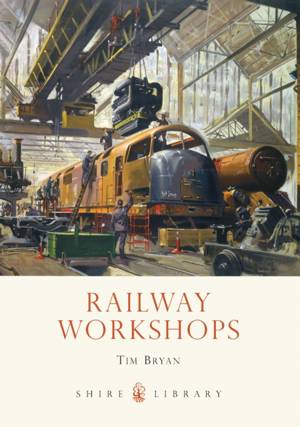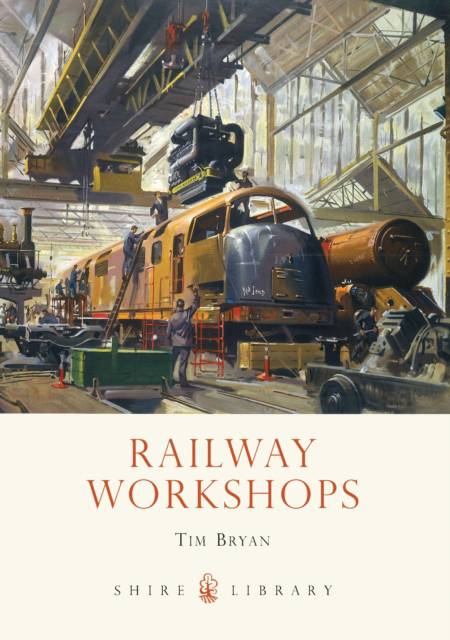
- Retrait gratuit dans votre magasin Club
- 7.000.000 titres dans notre catalogue
- Payer en toute sécurité
- Toujours un magasin près de chez vous
- Retrait gratuit dans votre magasin Club
- 7.000.0000 titres dans notre catalogue
- Payer en toute sécurité
- Toujours un magasin près de chez vous
Description
This is the story of an industry that began in the North of England, with small engineering concerns building engines that powered early railways like the Stockton and Darlington and Liverpool & Manchester. Once railway companies had become firmly established, the industry expanded dramatically as they set up their own engineering workshops to build and maintain not only locomotives, but also carriages, wagons and all manner of other items of equipment.
Locations like Crewe, Derby, Doncaster, Eastleigh and Swindon soon became famous as 'Railway Towns' with new communities growing up alongside the extensive railway workshops, housing the thousands of men and their families. The scale of these operations was enormous, with works running as self-contained establishments, complete with their own foundries, machine shops, erecting shops, woodworking and carriage body shops. Supporting all this were huge office and design complexes, electric and hydraulic power stations and other associated activities. Alongside the works operated by the mainline railways was a large and important private industry, with famous names like Beyer Peacock, North British, Robert Stephenson & Hawthorns and Vulcan Foundry building engines not only for domestic use, but exporting British railway locomotives and rolling stock all over the world. At their height British workshops were turning out over 2000 locomotives a year, for railways at home and abroad, and after the Second World War more than 47,000 people were still employed in workshops run by the nationalised British Railways, with a further 13,000 still working for private firms. The dramatic changes to the railway industry since 1945, which have included the decline of steam and its replacement by diesel and electric power, the BR Modernisation Plan, and the eventual privatisation of British Rail have had a profound effect on the railway workshop industry. But the shadow of the workshops is a long one, and in many towns and many families they have left an indelible mark.Spécifications
Parties prenantes
- Auteur(s) :
- Editeur:
Contenu
- Nombre de pages :
- 56
- Langue:
- Anglais
- Collection :
Caractéristiques
- EAN:
- 9780747812012
- Date de parution :
- 21-08-12
- Format:
- Livre broché
- Format numérique:
- Trade paperback (VS)
- Dimensions :
- 151 mm x 209 mm
- Poids :
- 127 g

Les avis
Nous publions uniquement les avis qui respectent les conditions requises. Consultez nos conditions pour les avis.






